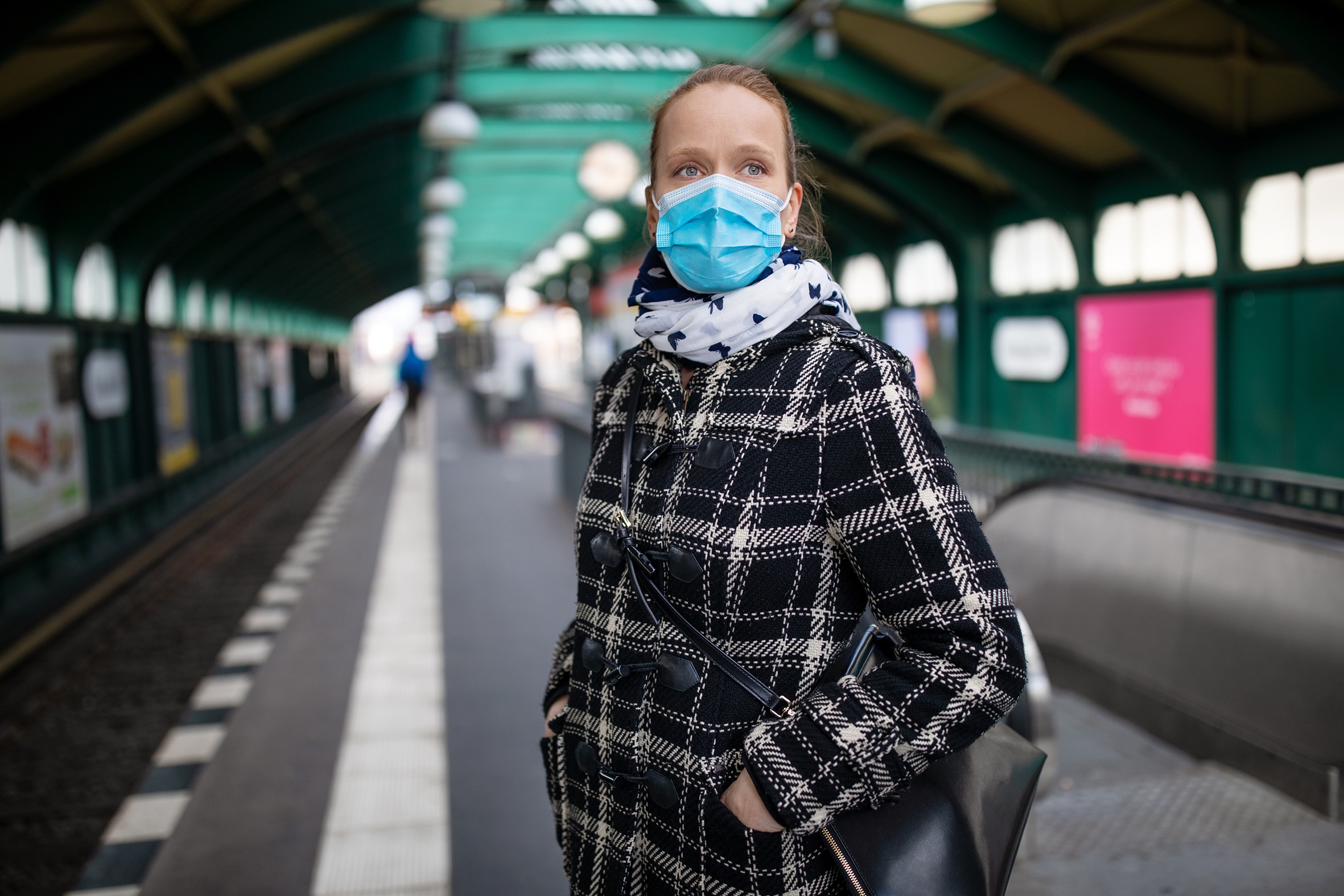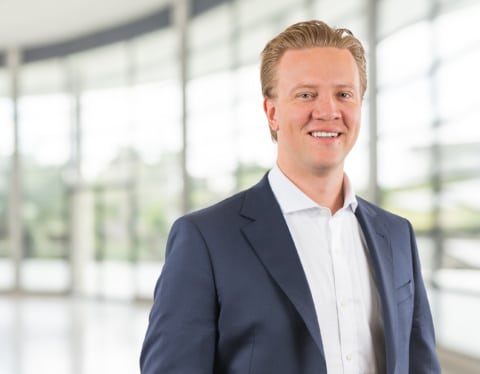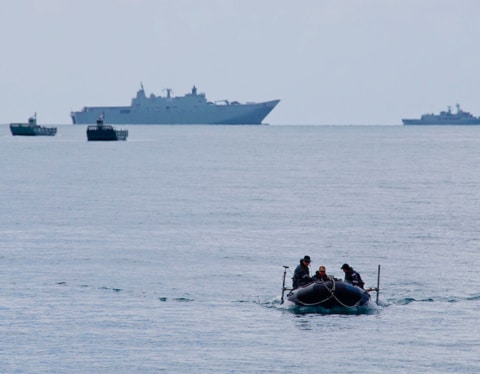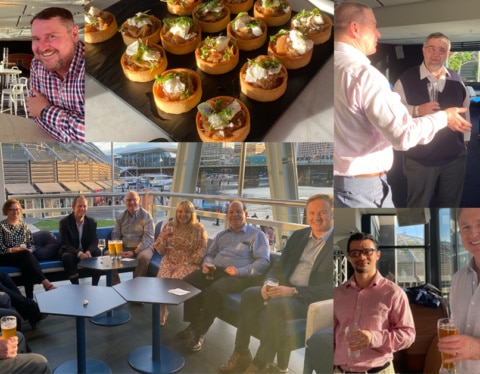The recent online event hosted by ARA CEO Caroline Wilkie during Rail Safety Week, included a panel discussion with high-profile safety professionals who shared their expertise and practical advice regarding projects, innovations and safe work practices that are changing the rail industry for the better. They also discussed how the industry’s safety focus has changed in response to COVID-19 and how the industry is working to keep its systems, employees, and customers safe at all times.
The panelists included:
– Arthur Loucas, Deputy Executive Director, Sydney Trains
– David Bainbridge, Project Director – Safe Work Improvement Program, Corporate Services and Safety, ARTC
– Huw Bridges, Chief Safety and Assurance Officer, Transdev Australasia
– Sandra Wilson-Ryke, SQE Director, Keolis Downer Gold Coast
Attitudes in the industry are shifting
The rail industry historically has been slow to modernise and adapt to changing requirements from employees, industry, and customers. However, all panelists agreed that this attitude is changing, and is enabled by technological solutions, as well as changes in attitudes from leaders through to the end users.
David Bainbridge highlighted that the industry and work environment is often constrained by rules, which can be contradictory to success in outcomes and improvements, especially in technological advancements.
“We need a process to assess risks by providing 21 st century tools to enable staff to call out potential human error. We need to enable real time decisions to be made in the field.”
Arthur Loucas has taken the approach that safety is everyone’s responsibility, and is building communication tools to ensure that every employee becomes a safety ambassador.
“We have changed methods of delivery so people can learn through experience or observing others’ experiences. The best way to do is often to show and we find that this provides a better outcome and positive experience for our staff.”
Sydney Trains have developed an internal workplace social media platform that promotes positive safety and customer behaviour. Staff are encouraged and empowered to share their experiences and call out examples from their colleagues of positive behaviour. Staff also receive video content through email or SMS to reinforce these messages.
“The customer is at the centre, and safety is at the core of what we do.” Said Mr. Loucas. Sandra Wilson-Ryke added that to create a safety culture, the leadership needs to invest in safety programs but also need to ensure these are turned into effective outcomes, by creating a common language through experience, procedures, and internal communications. This reiterates the terminology in order to embed it into the organisation.
David Bainbridge, through his work on the Safe Work Improvement Program at ARTC, conducted extensive research within the organization. This included an audit of near-miss incidents, workshops and brainstorming sessions to deliver a series of solutions that focus on ‘What Safety Means for ARTC’.
These are broad reaching and include a cultural change for the organization, but are also inclusive at every level. They involve improved training outcomes that work on hard and soft skills; improving communication standards in language, terminology and processes; improved planning procedures that integrate risk and safety; and incorporating continuous improvement measures that ensure ongoing
compliance and implementation.
This has already resulted in a net improvement for the ARTC. The network controller reported that they have reduced calls by 40,000 in a five month period. That means the controllers have more time to focus on core job requirements.
The COVID-19 pandemic has had a huge impact on the emphasis of both employee and customer safety.
Mr. Loucas talked about how customer expectations changed quickly, and how necessary it was to adapt to the changing environment to make sure both workers and passengers felt safe.
“We responded quickly with regular health and safety meetings and various teams working together.”
“We have implemented a range of initiatives from cleaning hard surfaces at stations, on trains, and in cabs several times a day, to providing hand sanitiser at stations and hand wipes for people to take on to trains themselves.”
“We are also working with leaders to encourage people to stay at home if they are feeling unwell. We are finding that there is a real lack of tolerance in the general public now to people being sick. This can lead to negative behaviour.”
Ms. Wilson-Ryke highlighted that there has been an increase in anti-social behaviour, as well as expectations from the general public. Adaptability and agility are key in delivering safe services.
“Things are changing quickly and often. Thinking outside the square to change processes and practices, and managing the impact of change needs to be assured.”
Caroline Wilke spoke about the work being undertaken by the ARA to determine if the penalties are adequate for anti-social behaviour by members of the general public towards rail staff and the need for them to be classified as essential services, similar to police, fire and ambulance workers.
Creating a safe environment is the priority
When asked what the most important issue around rail safety was for each of the panel members, the responses were unified. Creating a safe and efficient environment for workers and customers was the number one priority – from dealing with anti-social behaviour and protecting front line staff, to mitigating self-harm incidents, to reducing the number of falls between the gap at rail stations.
People’s safety continues to be a priority, and it is evident that there continues to be ongoing emphasis on this important issue by leaders across the industry.
Safety Assurance is part of the equation
Systematiq has been working with MTM on Rail Safety Assurance Management Plans for the High Capacity Metro Trains project and the Level Crossing Removal Authority, supplying consulting systems engineers and safety assurance managers to deliver reports and risk assessments. This work is crucial to making sure the new services will be safe for both operators and customers into the future.
We asked Edina Hadzovic, Systematiq’s senior engineering consultant currently with MTM what her thoughts were around the importance of Safety Assurance in program delivery.
“My main role is centred around ensuring that the correct processes are followed, and the right evidence is achieved in order to present the argument that the HCMTs can be safely operated on the Melbourne Metropolitan Train Network. As an Accredited Rail Transport Operator, MTM holds safety to a very high standard and has a duty to uphold this to themselves, the Office of the National Safety Regulator (ONRSR) and their passengers.”
Edina has also been impressed by the emphasis around safety within MTM as well, with the ‘zero harm’ culture they have implemented.
“Every decision made considers safety as a priority. MTM have learnt from previous incidents and have implemented these lessons well throughout the organisation.
“The role of safety assurance in the HCMT project isn’t limited to the work produced by MTM. As a large multinational project, the delivery of the HCMTs is supported by many stakeholders from both the public and the private sector. Therefore, my role includes ensuring that the ‘whole of railway’ safety argument embodies the processes and the outputs produced by all invested parties. The complexity of
this role further grows as system integration commences and the HCMTs are introduced to other projects running concurrently (for example the Melbourne Underground Rail Loop and the High Capacity Signalling system).
The high standards of safety assurance for the HCMT project has continued to satisfy the Office of the National Safety Regulator (ONRSR). MTM continue to provide evidence to support that the HCMTs are safe for passenger service. This provides peace of mind for all stakeholders in development of the project.
This highlights the importance safety has in all aspects of rail service delivery – from the initial stages of a project planning and development of new services, through to the ongoing maintenance and customer service delivery across our networks.
Systematiq are a team of highly qualified consultants and are experts in rail consulting services. Our expertise is primarily in Rail and Transport Tender Writing and Project Procurement, Light Rail Consulting, Transport & Asset Management, and Rail Consulting.
A version of this article was published in Rail Monthly online newsletter earlier this year.




